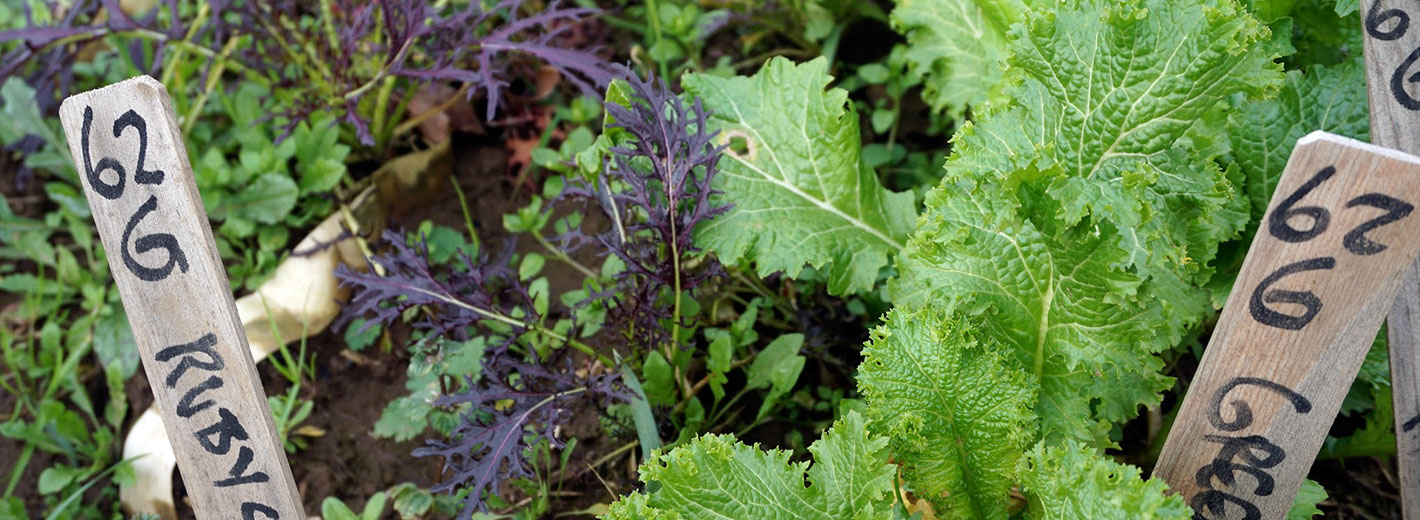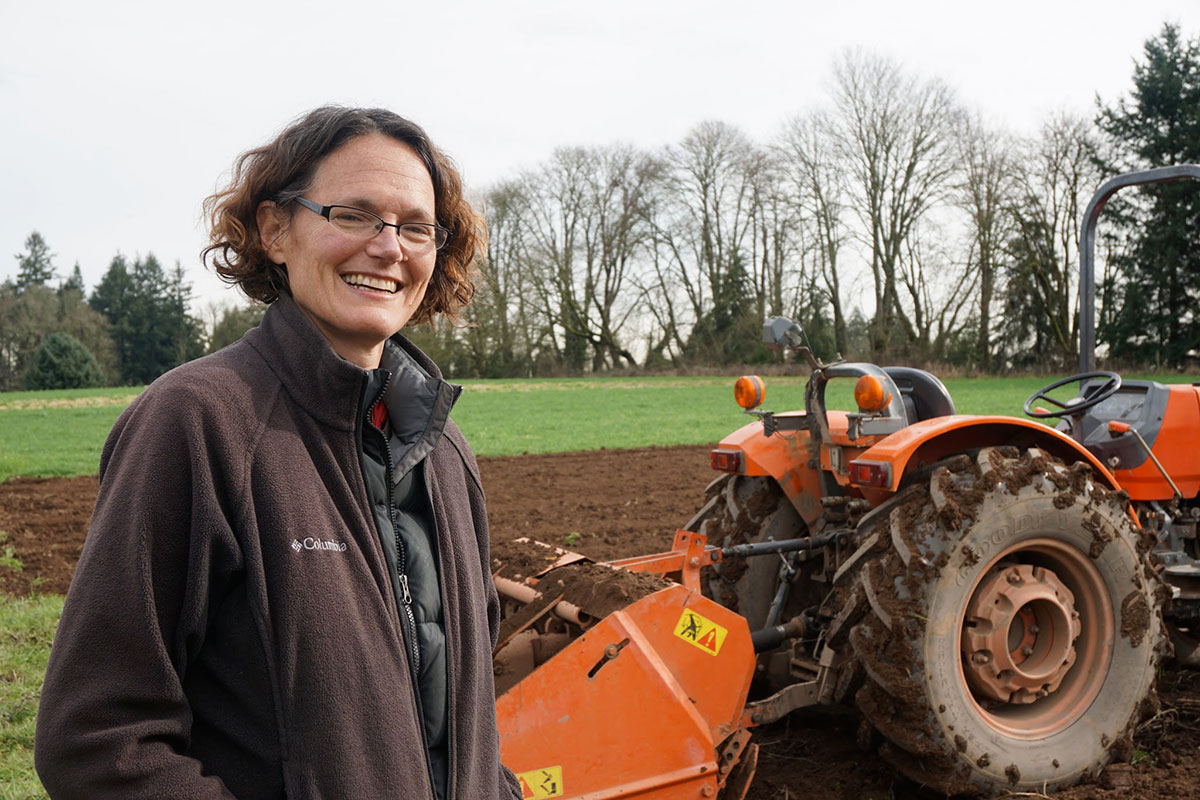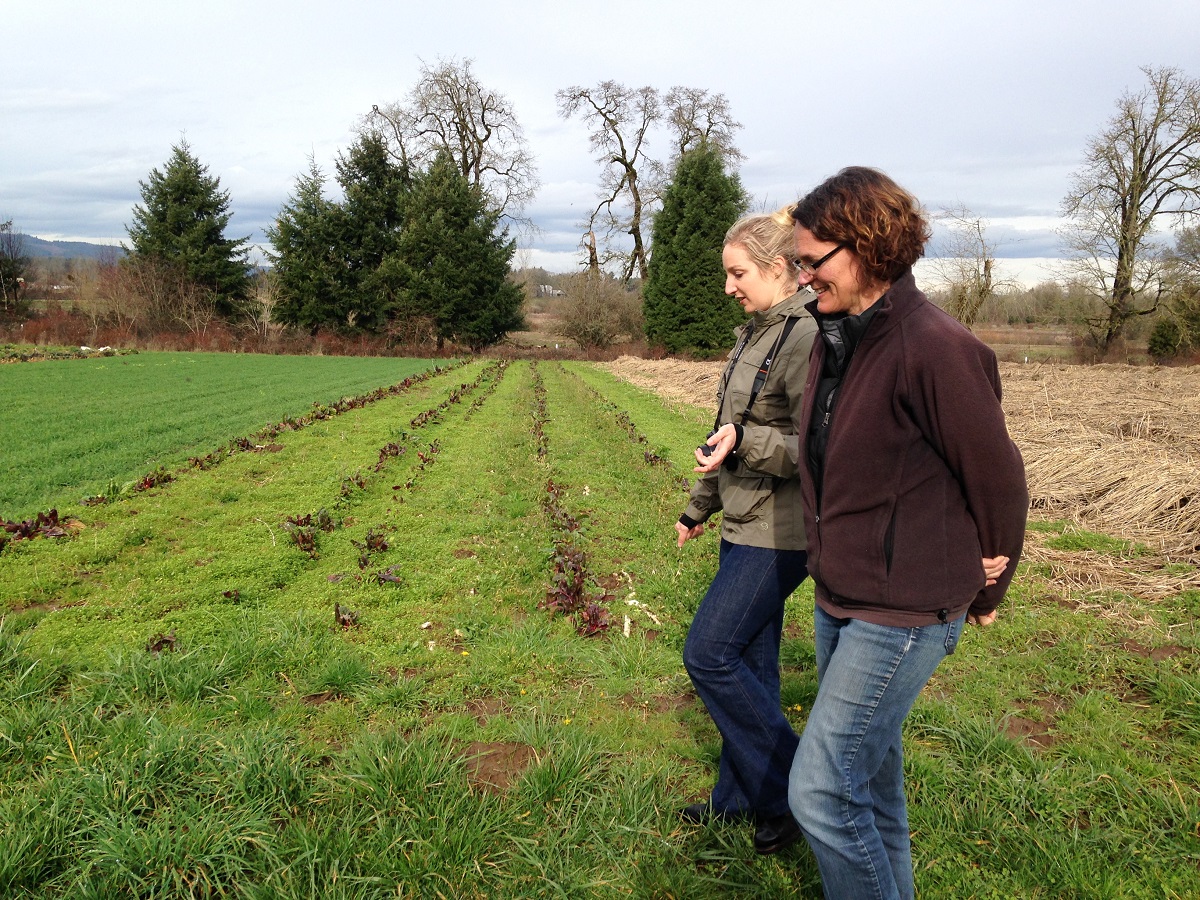
“Kissed by the Cold”: Exploring Sauvie Island Organics
One of my favorite parts of my new job is fast shaping up to be the field trips — and by that I mean the trips to walk the actual fields of working farms!
When Waste Specialist Claire Cummings told me — a girl born and raised in New Jersey — that we were about to leave her Portland apartment and drive a mere 30 minutes to a rural island along the Columbia River, it was hard for me to wrap my head around the idea of “river island.” The only islands I’ve associated with a city are Manhattan, Long Island, and Staten Island. And actually, Sauvie Island isn’t that different from those — minus all of the skyscrapers and the 8.4 million people and plus a wildlife refuge, lots of farmland, and pick-your-own pumpkin patches.
We crossed the bridge onto the island, driving through fields to arrive at Sauvie Island Organics. Funky music was in the air as farmer Jennifer Surdyk washed produce and prepared bins for the farm’s Community Supported Agriculture (CSA) program. She directed us to founder Shari Raider’s office in a small building bordering the plot, where Shari greeted us and told us she was grateful for an excuse to get away from her computer and get back outside to give us a tour.

Shari with the farm’s spader, which prepares the soil for planting (and preserves its integrity better than a traditional tiller)
Shari is actually a graduate of Cornell University’s School of Hotel Administration (like our Vice President of Strategy Maisie Ganzler!) and worked in the restaurant industry for a little while, thinking she would open a restaurant. While working at top-tier, farm-to-table restaurants such as Greens and Chez Panisse in the San Francisco Bay Area, she interacted with farmers coming in and out of the back door every day. She became more and more intrigued by the first step in the food system and decided to enroll in UC Santa Cruz’s Ecological Horticulture program.
From there, she founded Sauvie Island Organics in 1993, starting out with just 1 acre! She now has four sites totaling 25 acres, growing more than 40 different varieties of organic crops, from tomatoes to celeriac; Shari says their most consistent crops are their greens. There are four full-time employees and 25 to 30 seasonal employees, many of whom are part time. Shari told us that most of them are young people interested in learning more about sustainable agriculture.
Bon Appétit is one of Sauvie Island Organics’ largest wholesale clients. Our teams at University of Portland, Lewis & Clark College, Reed College, OMSI, and others are proud to serve their produce. Shari sets aside 25 percent of the farm’s crop plan for corporate sales, while 75 percent is designated for the CSA program. Shari is a big fan of Bon Appétit: she told us, “Your company walks its talk!”
And Sauvie Island Organics isn’t just growing crops: it also has a big educational component as the home base for Sauvie Island Center, which has brought 5,000 elementary schoolers to the farm since 2005. Shari also had some great advice on getting kids more excited about vegetables — a tip I’ve already shared with friends and tucked away for the future. Like her customers, she gets a CSA basket each week and cooks up creative dishes for her kids. They don’t have to eat anything they don’t like, but they are asked to take a “no thank you” bite of anything served. Now her 10 and 12 year olds beg for beet salad.
Shari also organizes farm visits with University of Portland’s honors students and is proud of the farm’s research partnership with Oregon State University, mostly related to cover cropping (planting crops during the off season), a practice that reduces the amount of fertilizer needed and keeps the weeds down. They do annual soil tests and have developed four fertility blends to apply just the right nutrients to each crop.

Shari and Claire chat as they walk between the winter cover crop rows
Small-scale organic farming isn’t always the idyllic experience some of us imagine when we dream of running away to become farmers. Many of Sauvie Island Organics’ crops need to be protected from harsh weather and pests since they don’t use synthetic pesticides. They have had entire harvests wiped out until they figured out exactly which crops to keep covered. Last winter an ice storm destroyed three of their high tunnels. It’s physically and mentally demanding work, Shari acknowledged, but it’s obvious she has a deeply rooted passion for what she does.
When I asked Shari what her favorite vegetable was, she got a thoughtful look in her eyes and then answered as though it should be impossible for any farmer to have a favorite. She said she can eat kale every day, but her favorites really depend on the season. She loves fall delicata squash, roasted root vegetables, and in the winter the starches turn to sugars in carrots that are “kissed by the cold,” making them sweeter.
That made me wonder: “Can a farm be sustainable and still provide local produce in the winter?” The answer is yes! Sauvie Island Organics keeps roots vegetables such as carrots, beets, parsnips, potatoes, onions, and shallots for months in cold storage both on and off the farm to supply customer in winter months. This year they rolled out a December to March winter CSA.
Who knew that a little river-island farm in the rainy Pacific Northwest could be responsible for so much food, research, and education!